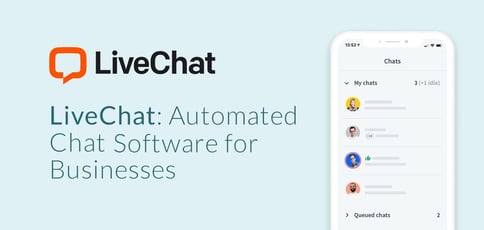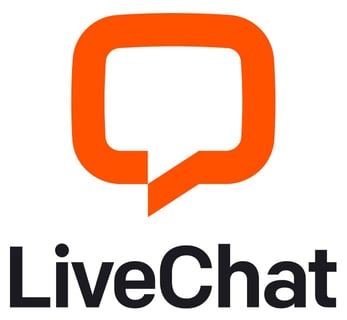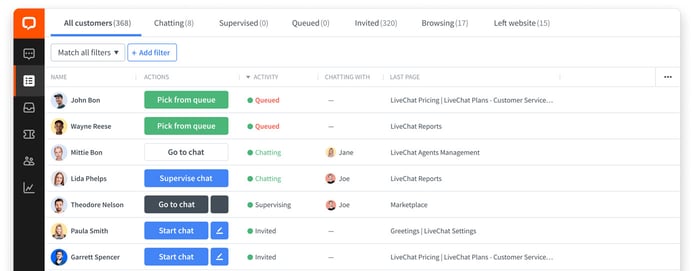
TL; DR: LiveChat provides a suite of automated tools and engagement services that allow companies to stay in touch with their customers. Its product suite includes the ChatBot assistant, an advanced AI-powered tool that automates support for more satisfactory customer journeys. During the COVID-19 pandemic, LiveChat has provided free products to healthcare nonprofits as they require more robust communication and service tools. The company is also making many of its software products open-source, allowing clients to customize their experiences and integrate LiveChat into external applications to extend functionality.
While some sectors have been hit hard by recent global events and plan to scale back, other companies have been motivated to move online to connect with their customers.
LiveChat, a customer engagement software provider, has seen many of those businesses leverage its solutions to engage customers as employees and service departments are stretched thin.
One of the most popular tools LiveChat offers is called ChatBot, and it leverages AI to streamline customer service channels through automating journeys. The solution has worked well for other companies since its launch in 2017, and LiveChat continues to add features that make it a vital component in its suite of engagement tools.

LiveChat offers a suite of customer engagement tools, including the AI-powered ChatBot.
It is all part of LiveChat’s commitment to helping companies and organizations connect with their customers.
“If your customers are online, we can assist in the communication process,” said Szymon Klimczak, LiveChat CMO. “We see that the activity of the entire internet is much higher.”
That puts LiveChat in a position to help many businesses transition from traditional, face-to-face customer engagement to automated, digital communication.
LiveChat passed the 30,000-client mark in early June 2020, and the company has seen the average customer journey change dramatically since March. Now, its solutions help businesses solve online support issues in a matter of weeks — or even days — that may have taken months or more.
“It would take them several months, or even years, to move to an entirely online product. But this is a condensed time where people are moving to the online space. It is a rapid process, so we’ve seen many companies pick up our product and run with it,” said Szymon.
Many businesses and organizations have had to make adjustments during the COVID-19 pandemic. LiveChat has stepped in with its communications solutions to help both businesses and communities thrive.
Developing Open-Source Tools to Enable Customization
Though companies are taking greater care to cut costs, they no longer have time to wait on decisions and often need to adopt new technologies rapidly. LiveChat software is easy to integrate and allows businesses to remain competitive in an evolving environment.
And LiveChat decided to make the software even more accessible for businesses to use out of the box, as many companies are shifting focus from day-to-day to long-term strategies.
“There are many customers that require customizations — something that’s tailor-made for them,” Szymon said. “We focused on opening our product’s API (application programming interface) and SDK (software development kit) and went in the direction of an open platform, not just for LiveChat, but for our entire portfolio. That allows for more integrations and changes. Now, companies can build an entire application similar to LiveChat that looks and works the way they want.”
With such a fast-growing client base, LiveChat anticipated its customers would have a diverse set of needs, which meant that its ChatBot technology needed to adapt to any situation. Opening up its SDK and API to developers allows customers to build the tailored support they require.
It’s about making sure that you’re doing a good job taking care of clients and providing them with what they need,” Szymon said.
That dedication has helped LiveChat, and its clients, increase profits despite overall trends in the market. The company’s primary product, LiveChat, has seen steady growth, as have all of the individual tools in its software suite.
Partnering with Nonprofits and Communities to Foster Communication
Though its messaging and mission haven’t changed since March, LiveChat has made partnering with nonprofits a priority. The company felt that it wasn’t the right time to focus on monetizing its software or developing new revenue streams and decided to offer its services for free to help with the COVID-19 pandemic.
LiveChat provided software free of charge to more than 100 nonprofits, many of them in the healthcare industry. Part of its company mission is to help developers and businesses that serve communities. So, when it realized that its software could help save healthcare workers valuable time in screening patients, LiveChat built a COVID-19 ChatBot Assessment tool, and they offered it free to hospitals.
And LiveChat is also seeing that generosity pay off as it translates to more companies wanting to use its tools. The company has seen stock prices more than double since March, based on its ability to foster communication between organizations and end users.

LiveChat products save businesses valuable time in providing customers with satisfactory service.
“If you’ve moved from a brick-and-mortar store to a digital storefront, LiveChat has solutions to help you reach your customers. And there has been a huge increase in demand and use for LiveChat since March,” Szymon said.
LiveChat software is scalable, customizable, and has become more versatile in the types of companies it can serve. Startups, enterprise businesses, and nonprofits can all improve operations by using LiveChat’s automated ChatBot software.
In a world where some businesses find it difficult to engage, it’s still essential to initiate dialogue and begin the customer journey. That’s why the automated ChatBot offering can be an excellent first step when a company doesn’t have enough support staff to keep up with demand.
LiveChat: Aiming to Remove Bias and Expand Integrations
As LiveChat looks toward the future, it isn’t just thinking about adding to its portfolio. The company is also considering the role that text communications play in challenging or reinforcing biases.
“Our next focus will be on removing bias from conversations — be it bias in translation, the wrong channel, bias caused by misperception or language, cultural, semantic, or psychological bias. This area is underdeveloped, and there’s a huge space for innovation,” Szymon said. “You may have real-time translations, but the current technology doesn’t help you better understand the person you’re talking to, which is why we’re taking a closer look.”
There is often a chance for miscommunication or bias in text communication. LiveChat aims to lead the market in responding to human needs and harnessing its technology to serve communities rather than merely the bottom line.
And it has already integrated almost 200 external applications with its software, including Apple Business Chat and WhatsApp, LiveChat still aims to make its software work with every application available. The goal is to make it simple to jump from a chat to a call to a video conference through one interface. And LiveChat offers those capabilities through its solutions.
Beyond developing the functionality and ease of use for its product, the company also fosters a community of developers and users. It continues to expand its online marketplace to keep conversations going.
By moving toward open-sourcing and appealing to a broader user base, LiveChat is building an even larger ecosystem for its products. That brings added value without added costs and is a significant reason why LiveChat has continued its growth trajectory during challenging times.
HostingAdvice.com is a free online resource that offers valuable content and comparison services to users. To keep this resource 100% free, we receive compensation from many of the offers listed on the site. Along with key review factors, this compensation may impact how and where products appear across the site (including, for example, the order in which they appear). HostingAdvice.com does not include the entire universe of available offers. Editorial opinions expressed on the site are strictly our own and are not provided, endorsed, or approved by advertisers.
Our site is committed to publishing independent, accurate content guided by strict editorial guidelines. Before articles and reviews are published on our site, they undergo a thorough review process performed by a team of independent editors and subject-matter experts to ensure the content’s accuracy, timeliness, and impartiality. Our editorial team is separate and independent of our site’s advertisers, and the opinions they express on our site are their own. To read more about our team members and their editorial backgrounds, please visit our site’s About page.

